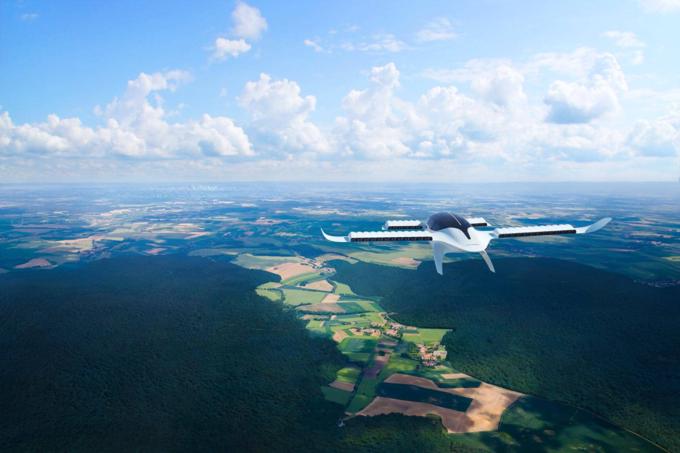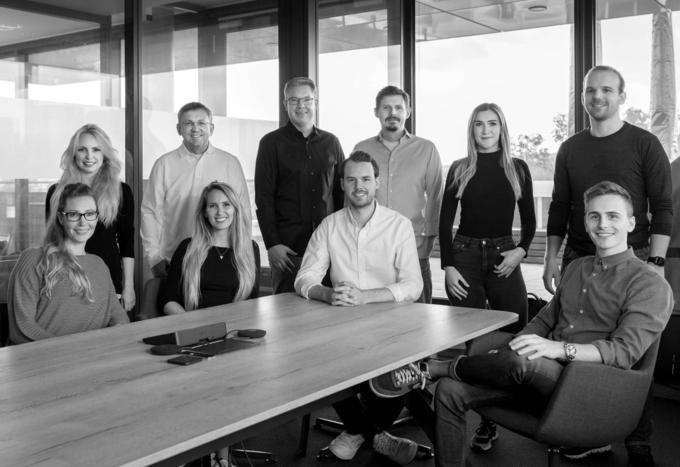The next wave of technological breakthroughs
is ahead of us
As an early stage deep tech investor, our focus at Freigeist lies on disruptions that haven’t happened just yet but that can be anticipated if you keep an eye on technological developments. The changes we’ve seen in our society since the advent of microchips, data storage, the internet and smartphones are tremendous. The way we communicate with others, the way we consume, the way we shop, the way we navigate, the way we access knowledge - a few key technological developments have had a far-reaching impact on our everyday lives.
Now, there’s a second wave of technological breakthroughs about to happen

We like to call this the 10xera 1.0. But as of right now, we’re entering the 10xera 2.0 - with technologies like artificial intelligence, robotics, 3D-Printing, synthetic biology, 5G, IoT and Edge Computing evolving exponentially, the second wave of technological disruption will be much bigger than what we’ve ever seen before. The difference being that this time, since we’re already globally connected, technological breakthroughs will roll out much faster and be available anywhere within no time. Another factor to take into account is the disruptive power of the technologies mentioned above. Each one of them on its own has the potential to turn entire industries upside down as well as let completely new industries emerge. But thanks to their digital origin, all of these technologies can be combined to create even bigger innovations.
Our world might look completely different in 20 years

Let’s take 3D-printing and AI as an example. 3D-printing allows us to combine materials that we haven’t been able to combine before, make alterations easily with no additional costs and almost no delay by simply changing the software (instead of having to change the entire production line), and create shapes and patterns that would be impossible to create using existing manufacturing processes. This alone could potentially change the entire manufacturing industry, as supply chains will sooner or later become obsolete, since we will be able to print any desired part as we need it, where we need it. Combined with artificial intelligence, this could lead to a world that looks much different from the one we know today. Smart algorithms will analyze exactly what features a certain product should have and how they are best achieved, and they might come to the conclusion that we haven’t been building everyday items the most efficient way possible.
Green Tech could save our Planet

But let’s not jump too far into the future. There are topics that are far more urgent at the moment - like climate change and sustainability. Clean tech is actually one of the most important sectors for Freigeist at the moment, because we truly believe that our planet can only be saved through technological innovation. That’s why we’re backing companies like Lilium Aviation and Hardt Hyperloop, working on green mobility concepts, and Kraftblock, a large-scale energy storage system that could become an important cornerstone in the global transition to renewable energy. Besides that, we’d love to see startups that are making progress on cleaner batteries, more efficient energy production or a blockchain-based smart energy grid that could help manage the volatility of wind and solar energy. There are still a lot of areas under construction in the energy sector and this is where we as humanity need innovative solutions most urgently.
Biotech and synthetic biology will bring major breakthroughs in the medical sector
Another area in which recent technological developments will have a major impact on our lives and our society is healthcare. With Crispr CAS, we now have a tool that allows us to change our genetic code. As scary as this may sound, it might enable us to heal patients with chronic diseases like cancer some day, so there’s a lot of hope in this field as well. Recent developments in biotechnological fields like proteomics or organoid technology could bring great benefits to drug development and precision medicine, resulting in overall better and faster treatment possibilities for patients. AI will play a great role in medicine as well. Already today, it is able to detect certain types of cancer earlier than any human radiologist could and the more medical data is available to train certain algorithms, the better they will get. AI is also excellent for finding parallels in very big amounts of data, which could be used to scan old drug testing data and potentially unveil drugs that, though they didn’t work for the initially tested cause, might work for something else. Again, the possibilities for innovation in the healthcare industry are endless and obviously very beneficial for humanity, for the most part.
Our world is changing. We want to contribute to those changes.

Especially in Germany, where our fund is based, but to some extent anywhere in the world, people tend to be afraid of change. Yet in most of the scenarios presented above, change is a good thing. It’s good for our planet, for our health and for our safety. Also, it is inevitably about to happen, anyway. There is no point in running from those changes, because sooner or later someone in your industry will see the opportunity and take it. At Freigeist, we are looking for teams to back that have discovered one of those opportunities and that have the technological know-how to build a product that can solve a pressing global issue and potentially even disrupt an entire industry.